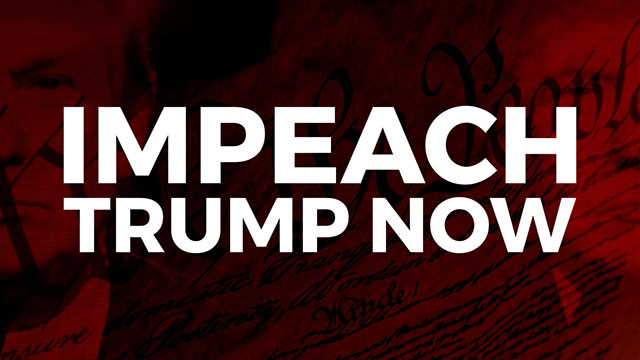
SAT TEM8 GRE
外刊例句
- The opposition threatened to impeach her because of allegedly illegal funding arrangements for the government.
因为她涉嫌为政府非法募资,反对派威胁要以此弹劾她。
——《经济学人》 - Mr. Clinton was impeached by a Congress in which the opposition party controlled both the House and the Senate.
弹劾克林顿的是一个参众两院都由反对党把持的国会。
——《纽约时报》
基本释义
[verb] to make a formal statement saying that a public official is guilty of a serious offence in connection with their job, especially in the US
[动词] (尤指在美国)正式声明某公职人员在工作中犯有严重罪行
深入解读
impeach一次源自于古法语empêcher,和impede(阻碍)一词同源,又可再追溯到晚期拉丁语impedare(捉住),由im-加上ped(脚)表示给脚戴上镣铐。它常见的用法就是指“弹劾”,即控告公职人员犯下重大罪行。在法律上,impeach也可指“质疑”,如~ sb's motives(质疑某人的动机)。
名人用例
I brought myself down. I impeached myself by resigning.
我自食其果。我通过辞职弹劾了自己。
出自理查德·米尔豪斯·尼克松(Richard Milhous Nixon,1913年1月9日-1994年4月22日)是美国政治家,曾于1969年至1974年担任第37任美国总统,1974年时成为美国历史上唯一一位在任期内辞职下台的总统。
同近义词
- charge: (of the police) to make a formal statement saying that someone is accused of a crime
- accuse: to say that someone has done something morally wrong, illegal, or unkind
- incriminate: to make someone seem guilty, especially of a crime
